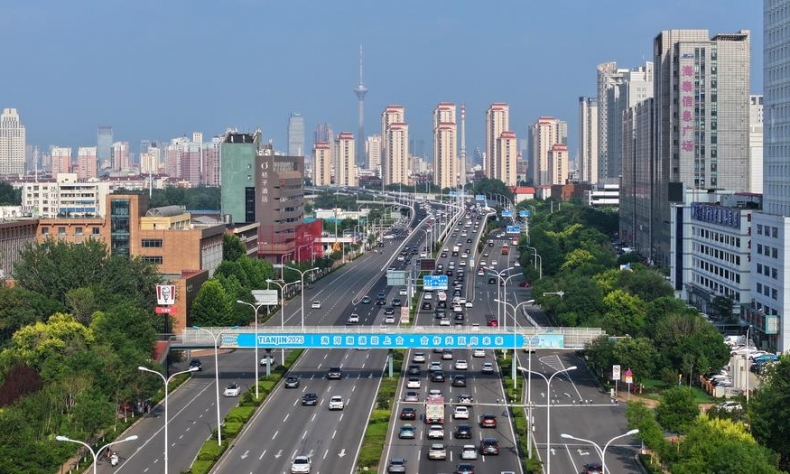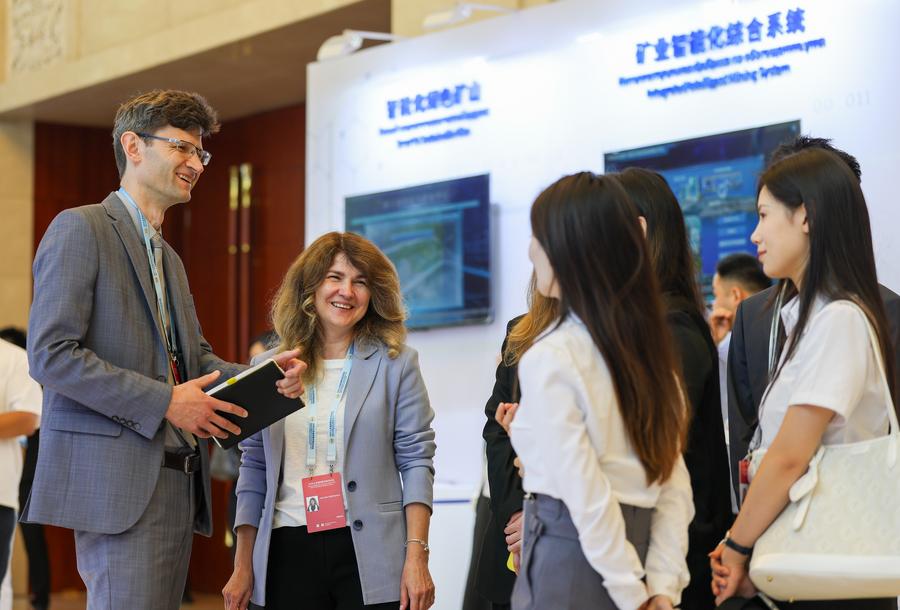Can the SCO Reshape Eurasian Geopolitics?

In an epoch where the specters of protectionism, proxy conflicts and humanitarian crises loom large, the SCO’s promise lies in its capacity for pragmatic, sovereign-led collaboration that resists the divisiveness of bloc politics.
Can the Shanghai Cooperation Organization (SCO) emerge as a pivotal forum to mitigate the escalating fracturing of Eurasian unity? As Washington’s tariff regime climbs to punitive heights and proxy conflicts exacerbate humanitarian crises, the efficacy of long-established Western-led alliances appears ever more questionable. The persistent exhaustion with bloc-driven diplomacy, epitomized by NATO, QUAD and AUKUS, signals a wider yearning for an alternative paradigm that eschews zero-sum calculations. Within this context, the forthcoming SCO summit in Tianjin assumes critical strategic significance that transcends mere ceremonial gathering.
Born from the Shanghai Five’s initial purpose to resolve border disputes and combat terrorism among China, Russia and Central Asian states, the SCO has evolved into an expansive Eurasian consortium incorporating India and Pakistan. It now represents nearly half of humanity and commands roughly a third of global economic output. Yet the SCO’s raison d’être distinguishes itself from typical geopolitical blocs: It advocates for non-interference, mutual respect and consensual decision-making, resisting hegemonic impulses that have often stymied other multilateral forums. The Chinese foreign ministry’s recent characterization of the summit as a moment for “greater solidarity, coordination, dynamism and productiveness” affirms an ambition to cultivate a qualitatively different model of regional cooperation.
The SCO’s multidimensional approach to Eurasian challenges is of paramount importance. Its joint mechanisms for counterterrorism and intelligence-sharing are vital in addressing the asymmetric security threats prevalent across Central and South Asia. These efforts provide a platform where strategic rivalries may be managed through dialogue rather than conflict escalation. The organization’s promotion of connectivity and economic collaboration aims to weave disparate national economies into a more cohesive regional whole, counterbalancing protectionist tendencies that have gained ground elsewhere.
Sri Lanka’s quest for full SCO membership, while noteworthy, should be contextualized within the organization’s broader strategic calculus rather than treated as an isolated focal point. The island nation’s strategic location along critical maritime corridors and its increasing engagement with China’s Belt and Road Initiative add layers of significance to its accession aspirations. However, this is one piece within a more complex puzzle where various Eurasian states are seeking deeper integration, often alongside membership bids to other regional entities such as BRICS and ASEAN. Achieving full membership within the SCO will necessitate a demonstrated commitment to the organization’s principles and the ability to navigate its intricate political dynamics.
The SCO’s capacity to accommodate heterogeneous states—with differing governance models, economic priorities, and geopolitical ambitions—remains one of its most remarkable yet challenging features. While such diversity complicates decision-making and threatens internal coherence, it also affords the organization a unique adaptability absent in more rigid alliances. The ability to negotiate divergent interests through consensus rather than coercion is central to the SCO’s survival and potential success.
Furthermore, the organization’s role in countering the growing unilateralism and protectionism that destabilize the global order cannot be overstated. The so-called “America First” trade policies—typified by the imposition of punitive tariffs and strategic restrictions—have been critiqued by scholars as attempts to establish a “global trade tribute system” that erodes multilateralism under the pretext of national security. The SCO, through its promotion of diversified trade linkages and collective economic resilience, presents a countervailing force that could help preserve an inclusive international trading architecture.

Cultural and diplomatic exchanges facilitated within the SCO also serve as indispensable mechanisms for fostering mutual understanding and trust among member states and their partners. These engagements work to transcend historical animosities and geopolitical suspicions, nurturing a more conducive environment for cooperation. Such people-to-people connectivity, often overlooked in strategic analyses, is crucial for the longevity of any multilateral framework, especially one encompassing such a vast and variegated constituency.
The strategic significance of the SCO is heightened by its evolving function as a platform for reshaping global governance structures. Member states are increasingly recognizing the necessity of harmonizing their positions within both bilateral and multilateral frameworks to advance meaningful reforms in international institutions. This concerted effort seeks to safeguard and revitalize the multilateral trading system, particularly by reinforcing the principles upheld by the World Trade Organization.
In this light, the SCO emerges as a crucial instrument through which ascending powers consolidate influence, advocating for a more equitable and representative international order that corresponds to contemporary geopolitical and economic dynamics. In articulating this vision, President Xi Jinping has emphasized the importance of “building a new type of international relations featuring mutual respect, fairness, justice and win-win cooperation,” highlighting the organization’s potential role in fostering transformative global partnerships.
The forthcoming Tianjin summit must transcend symbolic reaffirmations and deliver tangible progress in reinforcing Eurasian connectivity, security cooperation and cultural integration. Success in these domains would signal a meaningful departure from the entrenched disunity and fragmentation that characterize much of today’s geopolitics, heralding a more functional multi-polarity.
In an epoch where the specters of protectionism, proxy conflicts and humanitarian crises loom large, the SCO’s promise lies in its capacity for pragmatic, sovereign-led collaboration that resists the divisiveness of bloc politics. Its ethos of inclusivity and respect for national sovereignty positions it as one of the few multilateral entities where competing interests may converge without succumbing to entrenched antagonisms.
While developments in India-China relations remain pivotal to the SCO’s trajectory, the organization’s true resilience and influence will depend on its ability to reconcile the diverse and sometimes competing interests of its member states. The persistent geopolitical pressures exerted upon Russia amid its ongoing conflict with Western powers, alongside Iran’s sustained regional and international marginalization largely shaped by external dynamics, present significant challenges that test the SCO’s diplomatic coherence and adaptability. Its future relevance hinges not only on managing these tensions but also on fostering deeper economic integration and cultivating a unified vision of regional stability.
As countries across Eurasia negotiate their roles within this evolving architecture, their willingness to engage constructively within the SCO framework will determine whether the organization can transcend its origins as a forum for border security to become a fulcrum for regional rejuvenation. The upcoming summit thus represents not only a moment of geopolitical significance but a test of the region’s capacity to manage complexity through collective endeavor rather than division.
Nilantha Ilangamuwa is a Sri Lankan-born journalist and author. He is the founder editor of the Sri Lanka Guardian and Lanka Courier.
 Facebook
Facebook
 Twitter
Twitter
 Linkedin
Linkedin
 Google +
Google +










